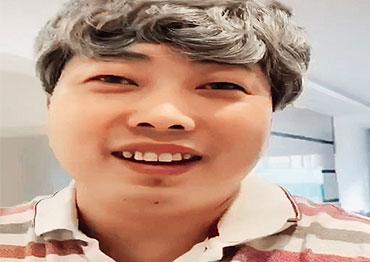In 1990, Zhao Benshan performed his now classic TV skit “Blind Date” on CCTV’s annual Spring Festival Gala, China’s most-watched TV program.
By 2019, Zhao appeared on the show 21 times, where he performed a number of classic comic sketches, including “Yesterday, Today and Tomorrow” (1999), “Selling Walking Sticks” (2001), “Selling Wheelchairs” (2002), “Heart Problem” (2003) and “Not Bad Money” (2009).
Watching Zhao’s skits are a Spring Festival tradition for Chinese families. His ability to appeal to people both young and old from across the country earned him the title “King of Comedy.”
Zhao also starred alongside other outstanding comedians from the Northeast such as Fan Wei, Gao Xiumin, Song Xiaobao and Wang Xiaoli in TV comedy series including Liu Laogen (2002), Ma Dashuai (2004) and Rural Love Stories (2006).
Wang Yanting, an associate professor at Jilin University of the Arts, told NewsChina that the Dongbei dialect is an integral part of the region’s comedy.
The Dongbei dialect is similar to standard Chinese, making it accessible to people of all regions. It is also a highly expressive dialect with distinctive diction, dramatic tone and rhythm. To a Chinese speaker, it has the unique power to make the most ordinary conversation sound comical.
As the famous line in the singer Zhao Donglin’s song “Dongbei, Dongbei” goes: “When crossing over the Shanhaiguan, you’ll find everyone there’s a Zhao Benshan.” Shanhaiguan Pass is one of the major passes in the Great Wall that divides North and Northeast China.
Li Xueqin, 25, is a rising stand-up star. In 2020, she placed fifth on the third season of hit stand-up comedy show Rock and Roast. A graduate of the prestigious Peking University’s school of journalism, Li became a social media sensation in 2018 after she posted several funny short videos on Douyin where she introduces famous landmarks to her crush - pop star Kris Wu. Wu responded online, which immediately put her under the spotlight. She later shone on comedy show Rock and Roast, appealing to audiences with her wit, humor, self-deprecation and trademark Dongbei dialect.
Li lives in Shenyang, capital of Liaoning Province and a one-hour drive from her hometown, the coal-mining city of Tieling. Tieling is known as “the city of humor”, the birthplace of Zhao Benshan, and also the setting of Zhao’s popular comedy series Ma Dashuai.
“People always say I’m hilarious¡ I tell them that’s because they haven’t really been to Dongbei and don’t have many Dongbei friends. Once you visit Dongbei, you’re sure to find hilarious people everywhere,” Li told NewsChina.
Jiang Fan, vice president of the China Folklore Society and former professor of folklore studies and cultural communication at Liaoning University, said the reason behind the region’s abundance of comedians is its long-standing oral tradition.
Since the 1980s, Jiang has worked on writing and compiling The Ten Anthologies of the National Folk Literature and Arts and conducted decades of field research in China’s rural northeast.
Part of her research included pingshu storytelling, a folk art where a single performer narrates stories from history or fiction. Pingshu stories are broadcast on radio stations across China and are popular among older cab drivers.
“Dongbei people are naturally gifted [pingshu] storytellers. More than half of the well-known storytellers in China are from Liaoning Province. In the 1980s, a number of them emerged who were mostly ethnic Koreans, Manchus and peasants whose ancestors migrated from North China in the late Qing Dynasty (1644-1911),” Jiang told NewsChina.
“Tan Zhenshan is one of the most outstanding storytellers. He could tell 1,062 stories, as if it was China’s One Thousand and One Nights,” Jiang added.
The researcher also cites the northeast’s extremely cold winter as an important factor behind the region’s vibrant oral tradition. “Though today people have more diverse cultural and entertainment choices, it hasn’t been that long since we bid farewell to traditional lifestyles. When electricity was not widespread in the villages of the Northeast, the most basic form of entertainment for people was to stay at home, tell funny stories and perform song-and-dance duets to while away the long winter nights,” Jiang said.

 Old Version
Old Version






